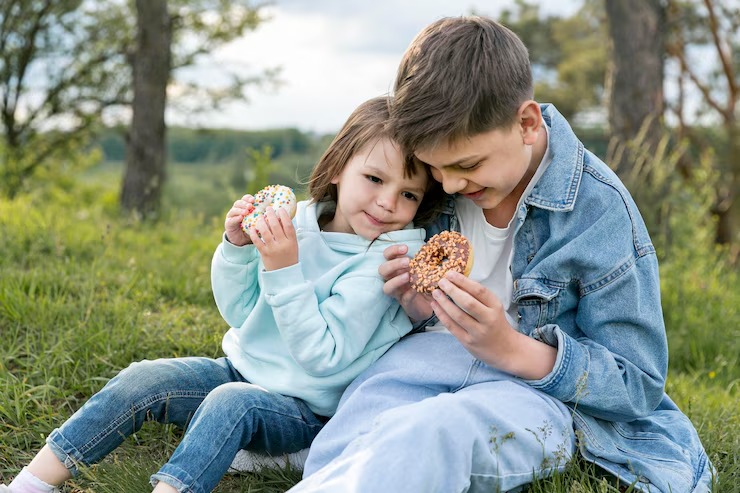Parenting is no easy feat. The challenges can sometimes feel like endless hurdles to overcome—from tantrums in the toddler years to defiance during adolescence. However, one truth holds steady through every phase of a child’s upbringing: kids thrive on a foundation of respect, love, and gratitude. These three cornerstones of effective parenting shape not only the character and behavior of a child but also the depth and quality of your family relationships.
This article dives into why these values matter, how to integrate them into your parenting approach, and how they shape your child’s development into a resilient, empathetic, and compassionate human being.
The Importance of Parental Respect
What Does Respect Look Like?
Respect in parenting is a two-way street. Many think of it in the context of children showing respect to their parents, but the reverse is just as critical. Respect means listening to your child’s concerns without dismissing them, honoring their individuality, and setting boundaries with empathy rather than authoritarianism. It doesn’t mean forfeiting parental authority but rather building mutual understanding and listening.
Why Respect Matters
Practicing respect in a parent-child relationship fosters self-esteem and confidence in kids. When children feel heard and valued, they are more likely to reciprocate with kindness and cooperation. Studies have shown that parental respect can positively impact a child’s behavior, making them less prone to rebellion and more adaptable to challenges. Respect also teaches children essential life skills, such as conflict resolution and effective communication.
Example: Imagine a parent allowing their child to calmly explain why they are upset rather than jumping to conclusions. The child learns from this interaction that their opinions matter, paving the way for greater mutual understanding in the future.
The Power of Unconditional Love
What is Unconditional Love?
Unconditional love doesn’t mean letting your child do whatever they want. It means separating who they are from what they do. Love that is contingent on achievement or “good behavior” can make children feel as though their worth depends on their performance, which may lead to anxiety or self-doubt.
Unlike permissive parenting (which avoids boundaries), unconditional love combines emotional support with consistent boundaries. It’s about ensuring your child knows they are loved for who they are, not what they do.
How to Show Unconditional Love
- Use affirmations. Tell your child you love them often, no strings attached.
- Be present. Spend quality time with them doing activities they enjoy.
- Avoid conditional praise. Celebrate effort more than results.
Real-world tip: Instead of saying, “I’m proud of you for getting an A,” try, “I’m proud of the hard work you put into your studies.”
Unconditional love reinforces a child’s sense of security, building the emotional resilience they’ll carry well into adulthood.

Cultivating Gratitude in Children
The Antidote to Entitlement
Gratitude combats entitlement by fostering appreciation for what your child has and receives. It helps shift the focus away from “more, more, more” and towards “thank you.” A child who practices gratitude is more likely to recognize and respect the effort others put into their wellbeing, whether that’s a teacher’s patience or a stranger’s kindness.
Practical Ways to Teach Gratitude
- Gratitude Journals. Encourage your child to write down three things they’re thankful for every day.
- Thank-you notes. Practice writing thank-you notes for gifts or acts of kindness.
- Volunteering. Getting involved in community service teaches kids to appreciate their privileges by helping those in need.
By embedding gratitude into daily life, you help foster a positive mindset that contributes to long-term happiness and social skills.
The Role of Parents as Role Models
Leading by Example
Children are sponges. They absorb far more from observing your behavior than from your lectures. If you want your child to show kindness and respect, it starts with how you treat your partner, friends, and even strangers during small moments.
Example: Say “please” and “thank you” when asking your child for help or serving them dinner. Courtesy toward them models the respect you want them to emulate.
Modeling Respect, Love, and Gratitude
When parents model gratitude, even in subtle ways, kids notice. For example:
- Saying thank you to your child for tidying up teaches them to appreciate effort.
- Apologizing when you make a mistake teaches humility and respect.
These actions reinforce that respect, love, and gratitude are not just ideals for children to practice but values inherent to all relationships.
Dealing with Challenges
Addressing Entitlement
If your child displays entitled behavior, try these strategies:
- Clarify Needs vs. Wants. Teach them the difference between things they need (e.g. food, clothing) and things they desire (e.g. new toys).
- Delayed Gratification. Help them understand the value of waiting and working for what they want.
Handling Disrespect
When children show disrespect, avoid responding with equal frustration. Instead:
- Calmly explain their behavior’s impact.
- Reinforce consequences for ongoing disrespect.
- Praise respectful behavior when you see it.
Navigating these challenges with patience helps reinforce teaches your child the importance of self-awareness and mutual respect.
Long-Term Benefits
Resilience
Children who grow up with respect, love, and gratitude are better equipped to handle adversity and setbacks. Knowing they have unconditional support builds a strong foundation for resilience and self-belief.
Empathy
When children feel valued, respected, and loved, they are more likely to extend those values to others. Gratitude teaches them to recognize the efforts of others, further fostering empathy.
Positive Relationships
The values you instill in your children today will influence how they interact with peers, colleagues, and partners in the future. By modeling positive behaviors, you’re investing in a lifetime of good relationships for your child.
Takeaway lesson: Parental respect, love, and gratitude are gifts that lay the groundwork for a compassionate, competent, and well-rounded adult.
Building a Foundation of Respect, Love, and Gratitude
Parenting isn’t about perfection; it’s about consistency, empathy, and intentionality. Children flourish when they feel respected, unconditionally loved, and encouraged to practice gratitude.
Implementing these values doesn’t happen overnight, but with small, consistent efforts, you can create a nurturing environment where your child feels valued and cherished. Want further tips or resources? Begin with integrating small habits, such as gratitude journaling or meaningful mealtime conversations, into your daily routines.
Raise the next generation to not only succeed but to be kind, resilient, and grateful human beings. Start today and see how these small changes transform your parent-child relationship for the better.
People Also Ask (PAA)
Q1. What does respect mean in parenting?
Respect in parenting involves listening to your child, valuing their opinions, and treating them with dignity, fostering mutual trust and understanding.
Q2. How does unconditional love affect a child?
Unconditional love enhances a child’s emotional security, builds resilience, and fosters a sense of self-worth, enabling healthy development.
Q3. What activities teach gratitude to children?
Gratitude journals, writing thank-you notes, and participating in volunteering activities are excellent ways to teach children gratitude.
Q4. How do parents act as role models for gratitude?
Parents model gratitude through their actions, such as saying thank you, acknowledging others’ efforts, and showing appreciation in everyday interactions.
Q5. Why is gratitude important for kids?
Gratitude helps combat entitlement, improves mental health, and develops empathy, fostering stronger social and emotional skills





